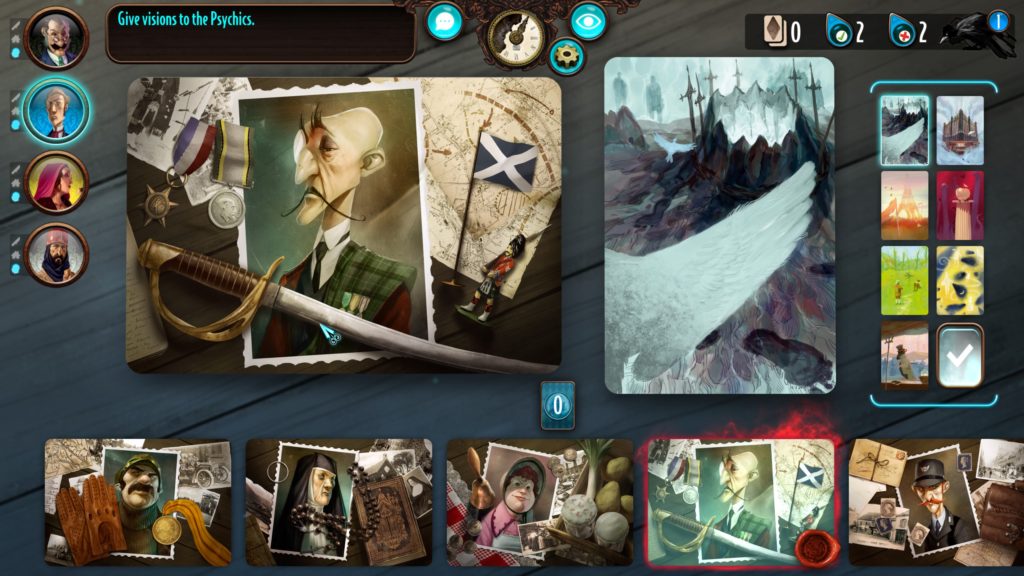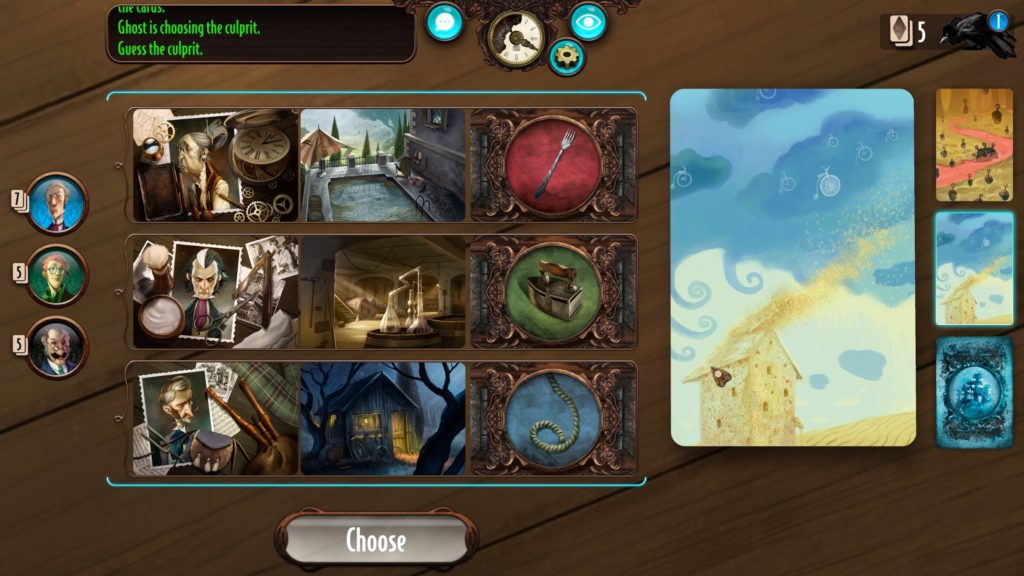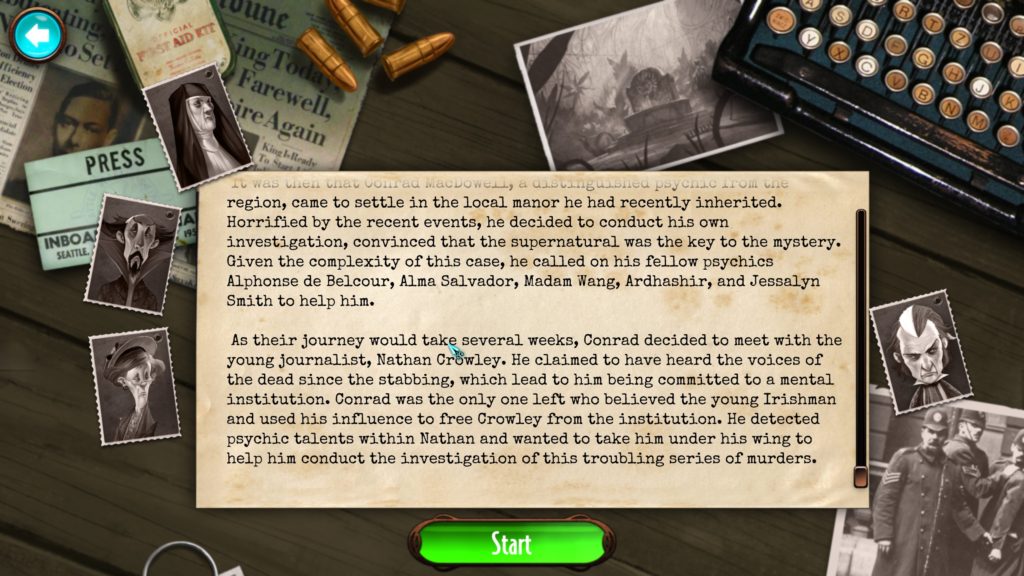
I hate the idea of leaving games in my library unplayed so I’m determined at least to give a whirl to every one of the titles I bought a while back in the boardgames bundle. This one however is a worse candidate than usual because it’s one of those super social subjective judgment games. It does have AI and even comes with a single player Story Mode but this is really the kind of game that ought to be played in person with your friends.
The premise that one player is the ghost of someone who has been murdered while the other players are mediums who investigating the case. The game is purely cooperative so all players win if they successfully identify the correct murderer within the time limit. The mediums can freely communicate with one another but the ghost can only communicate with the mediums by sending them visions. There are cards denoting suspects, where the murder happened and the murder weapon. There is also another deck of cards that the ghost uses to send visions and the art on these are much more abstract, Mediums can use tokens to judge whether or not the guesses of other players are correct and there is a final round of secret voting to determine who is true culprit.

Once I understood the rules I was skeptical that this game can even be played single-player but it indeed can. You can play as either a psychic or the ghost and the Story Mode has you playing as both across a number of cases. The Story Modes does as advertised have a story and you control a specific character throughout. But it’s nothing special with the main thing being that you meet more and more psychics who can help with a string of mysterious murders. The cases do increase in difficulty over time and one particularly nasty case requires you to complete it in half the usual time. But you can also cheat as it seems the final culprit of each case is always the same and never randomized.
Astonishingly the AI is able to associate vision cards with the cards for suspects, places and weapons. I’m not quite sure how they do it but I believe that the developers make use of player analytics to have the AI learn to associate cards the same way that players do. Some of these connections are obvious. A vision card with a bell in it is naturally linked to a character with a bell in her portrait for example. Some connections however are conceptual. One vision card looks something like a giant bear and you can use it to denote a connection with the hunter character. Many, many times however there are just no good associations that are available, even if the ghost makes use of an ability to throw away vision cards to draw new ones. In my case, I consistently have trouble linking cards for places like the kitchen and the larder with any vision cards. Things can easier over time as you learn how the AI associates cards. But there are also times when you think a connection is obvious but the AI doesn’t agree.

I had a good time learning the rules and understanding how it works but as I said, I feel that playing it with the AI or even online against other people is kind of pointless. This is very much a party game and it’s clearly inspired by Dixit which I loved years ago. The fun of it should be in discussing possibilities with other people around the table. One thing I’m unsure about is that it has a binary pass / fail condition at the end for all players. That seems kind of harsh to me and I’m very bad at this phase of the game as the vision cards given by the ghost don’t correspond one to one to another card but the whole set of three suspect-place-weapon cards. Overall this is a very solid adaptation of the board game but I think getting the actual board game seems like a better idea.